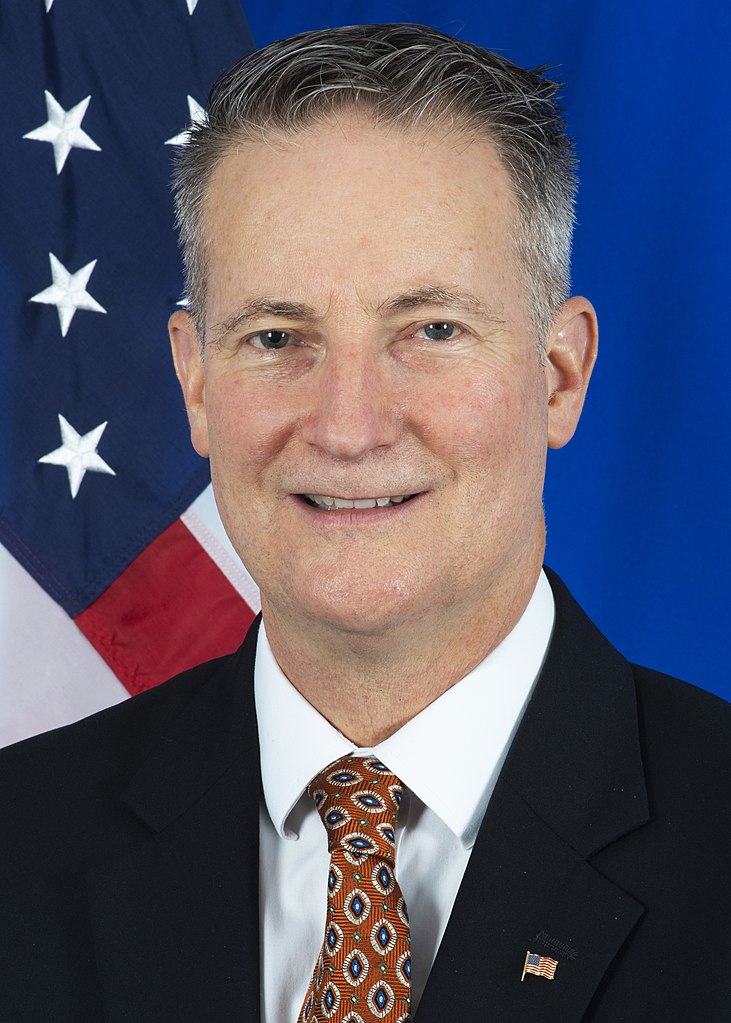
US Ambassador to Liberia, Michael A. McCarthy, has expressed deep concerns over the state of Liberia’s healthcare and infrastructure systems. In a press statement, he highlighted the fact that several hospitals across the country have not received any of the funds they were promised in the 2022 budget. Hospitals are essential, life-saving institutions that require proper funding to operate. McCarthy said he was troubled by the lack of concern shown by government officials towards the issue, which he believes to be a deliberate institutional blockade involving individuals from the legislature, the Ministry of Health, and the Ministry of Internal Affairs.
The ambassador highlighted the fact that if the government is failing to deliver statutory appropriations of only $100,000 to existing hospitals, why would it be trusted to deliver annual pledges of $3 million to $4 million for the future National Reference Laboratory (NRL)? The United States Government is investing over $40 million in constructing Liberia’s state-of-the-art NRL, which, when completed, will require $3 million to $4 million annually from the Liberian government to operate.
McCarthy’s statement also expressed concerns about the state of county service centers across the country. In 2022, none of these centers had received any of their budget allocations, usually around $13,333. McCarthy revealed that most of the county service centers, beautifully electrified over the past two years with UNDP-supplied solar power systems costing around $35,000 – $40,000 each, are reduced to the job of middlemen. The plight of these service centers makes a mockery of decentralization efforts.
It was striking that the further McCarthy went from Monrovia, the more elaborate and explicit were the reasons given for the lack of funding from the central government. “Oh, it is challenging for the government these days,” “Oh, Putin’s war has made everything more difficult,” “Prices have dried up the budgets,” “You donor partners must fill the gaps.” McCarthy wondered if these people were aware that, much to their credit, the Liberia Revenue Authority (LRA) has surpassed projections and increased revenues for the past four years, climbing from $435,682 million in 2019 to $605,005 million in 2022.
According to the ambassador, the legislature has spent more every year for the past three years on salaries and operations, allocating over $65 million in 2022. This was done while hospitals went without, and service centers withered on the vine. McCarthy wondered why legislators and ministers, those living on the top of the heap, were given annual duty-free imports that deny the LRA much-needed additional revenue. He questioned whether there was any reason other than the perverted version of the Golden Rule – “those that have the gold, make the rules”?
U.S. taxpayers spend around $60 million a year on healthcare in Liberia and another $23 million on education. The same legislature that spent $65 million on itself in 2022 appropriated around $7.1 million for grants and subsidies to county health facilities and $2.76 million for operations at basic and secondary education, although, as previously mentioned, that doesn’t mean the funds reached their intended destinations. McCarthy believes that if the legislature could appropriate an additional $10 million a year to primary education (for a country that is tied in last place for average days of school attendance) and an additional $10 million a year for county hospitals, even the greatest cynics concede that it would make a big difference. Just $500,000 each per year of actual maintenance would make a significant difference.
The ambassador’s statement highlights the critical need for transparency and accountability in Liberia’s government institutions. It is essential that government officials be held accountable for their actions and that funds are allocated to the essential services and institutions that Liberians depend on.